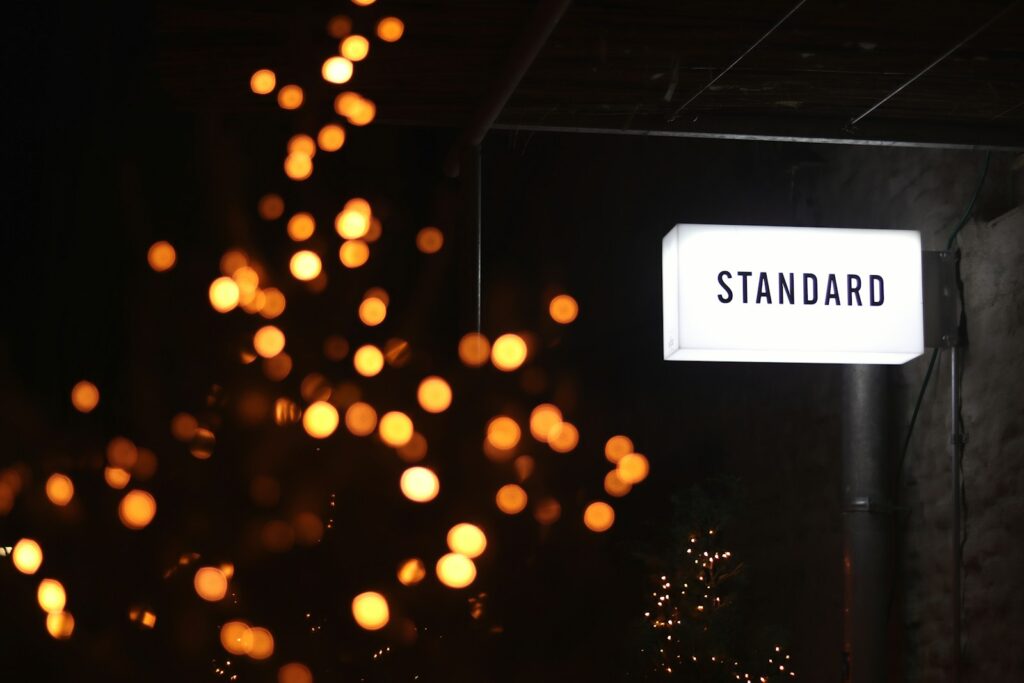An unexpected visit from competition investigators can be a destabilising experience for any business, whatever its size. Knowing how to react and what your rights and obligations are is crucial. Poor management of this situation can have serious consequences, ranging from significant financial penalties to criminal prosecution for obstruction. The purpose of this article is to explain how these investigations are conducted, the powers of officers and the essential reflexes to adopt in order to best protect your company's interests.
Who can conduct a competition investigation?
Two main types of agent are authorised to conduct competition investigations in France. It is useful to be able to distinguish between them because their prerogatives may differ slightly.
On the one hand, there are the officers of the Competition Authority's investigation departments. These officers, authorised by the General Rapporteur of the Autorité, intervene specifically to investigate anti-competitive practices (such as cartels or abuses of a dominant position as referred to in Articles L. 420-1 and L. 420-2 of the French Commercial Code) or to control economic concentration operations. Their scope of action is therefore focused on the Autorité's own areas of competence.
Secondly, there are the officials of the Directorate General for Competition, Consumer Affairs and Fraud Control (DGCCRF), authorised by the Minister for the Economy. Their remit is broader: they can investigate all the provisions of Book IV of the Commercial Code, which includes not only anti-competitive practices but also the rules on price transparency and practices restricting competition. They operate throughout France.
It is also possible, as part of European cooperation, for staff from a competition authority in another Member State to assist the staff of the French Authority in their investigations, particularly when cross-border practices are suspected.
Simple investigation or home visit ("heavy investigation")?
Investigators can intervene in two main ways, with widely differing degrees of constraint and implications.
L'simple surveyThis is the most common form of investigation, governed by Article L. 450-3 of the French Commercial Code. It can be triggered to gather general information on a sector of activity or to verify specific suspicions of anti-competitive practices. In such cases, the officers' powers include access to business premises during working hours (generally 8am-8pm), the ability to request documents (accounting, commercial, etc.) and to gather information, either on site or by being summoned to their departments. This type of investigation does not allow officers to search premises or seize documents against the company's will.
La search and seizureThe "dawn raid" is governed by article L. 450-4 of the French Commercial Code. It is much more intrusive and can only be carried out with the prior, reasoned authorisation of a judge: the juge des libertés et de la détention (JLD). This authorisation is only granted if there are serious grounds for suspecting the existence of serious anti-competitive practices. The judge's order precisely defines the purpose and location of the visit.
During a visit and seizure, the powers of the investigators are extended: they may enter any premises specified in the order (including the home if it is used for business purposes), examine any business documents, take copies or seize any data media (papers, computers, servers, telephones, etc.), and affix seals. The operation must take place under the supervision of the JLD who authorised it (who may travel or delegate this supervision to another JLD if the visit takes place outside his jurisdiction) and in the presence of a judicial police officer (OPJ). The company (the occupier of the premises or its representative) must be present or, failing this, the OPJ may request two witnesses.
What specific powers do investigators have?
Whether it's a simple investigation or a visit and seizure, the officers have powers defined by law, which are important to know.
- How to get there : They may enter any premises, land or means of transport used for business purposes. Access to the home is only possible if it is also used as business premises and, if the occupant objects during a simple investigation, with the authorisation of the JLD. During a search and seizure (Art. L. 450-4), the JLD's authorisation covers this access if the home is targeted. Access is generally granted between 8am and 8pm, unless the premises are open to the public or an activity is taking place outside these hours (production, marketing, etc.).
- Request for documents and information : Investigators can demand access to all business documents: accounting records, invoices, contracts, business correspondence, internal memos, business diaries, etc. For several years now, this power has explicitly extended to digital media: access to software, data stored on servers, computers, telephones, USB sticks, etc. They can obtain or take copies. They can also request access to the means of decryption if the information is encrypted. Specific powers also exist, under supervision, to access certain connection data ("fadettes"), although their implementation can raise complex legal issues.
- Auditions : Officers may collect information and evidence by summons or on site. Any person present in the company may be interviewed if they are likely to be able to provide information useful to the investigation.
- Seizures (only during an inspection and seizure - Art. L. 450-4) : Investigators may seize all documents and data media (including digital) that fall within the scope of the judge's authorisation. They may also affix seals to premises, cabinets or documents to guarantee their integrity for the duration of the visit.
What are your rights and obligations during an investigation?
Knowing and exercising your rights is fundamental when faced with a competition investigation, while complying with your legal obligations.
- The obligation to cooperate... and its limits : The company has a general obligation to cooperate and not to hinder the investigation. However, this obligation has an essential limit in the the right not to incriminate oneself. In concrete terms, while you must provide existing documents and answer factual questions about the organisation of the company or the course of specific events, you are not required to confess to having committed an offence. The nuance is important: you cannot be forced to produce a confession, but you can be asked to provide existing material elements, even if they may prove compromising.
- Information on the subject of the enquiry : Particularly during a simple investigation, the investigators must clearly inform you of the purpose of their enquiries. You must understand why they are there and what they are investigating. This information is a guarantee against the risk of making statements that you may not fully understand. In the event of a visit and seizure, the judge's order, which must be given to you, specifies the purpose.
- Assistance of a lawyer : You have the right to be assisted by a lawyer. During a search and seizure, it is strongly recommended that you contact your counsel as soon as the investigators arrive. The JLD's order must mention this option. Even if the investigators are not obliged to wait for your counsel to arrive before beginning their operations, your counsel's presence is essential to advise you, check that the operations are in order and ensure that your rights are respected, particularly in terms of confidentiality. You may also ask to be assisted during a hearing (on the spot or when summoned).
- Protection of confidentiality : Two types of information are particularly protected:
- Business confidentiality : Investigators can access sensitive information. During a seizure, it is possible to indicate which documents are covered by business secrecy. Procedures then exist for requesting that this information not be disclosed to other parties during the investigation before the Autorité (we will come back to this in another article).
- Confidentiality of lawyer-client correspondence ("legal privilege"): Written exchanges with your external lawyer, as part of the exercise of your rights of defence, are confidential and cannot in principle be seized. It is important to be able to clearly identify these documents. Please note that this protection is interpreted more strictly for in-house lawyers, particularly with regard to European law.
- Minutes : Minutes must be drawn up for each key stage of the investigation (interview, handing over of documents, visit and seizure). This document describes how the operations were carried out, lists any documents seized and records any statements made. It must be signed by the investigators and by the person concerned (you or your representative). You have the right to note down any observations or disagreements before signing (or to refuse to sign, stating the reasons for your refusal). You must be given a copy of the PV. These minutes constitute important evidence for the rest of the procedure, and their content and legality are therefore essential.
What do you risk if you object?
Attempting to obstruct a competition investigation is a very bad idea with potentially serious consequences. Obstruction can take several forms: refusing access to premises without a legitimate reason, concealing or destroying documents, providing false or deliberately incomplete information, refusing to answer a summons, breaking seals, etc.
There are two types of penalty:
- Criminal penalties : Obstructing DGCCRF officials in the performance of their duties is a criminal offence under article L. 450-8 of the French Commercial Code. The penalties are severe: up to two years' imprisonment and a fine of 300,000 euros. The regime is slightly different for acts of opposition directed at the Competition Authority's agents (or DGCCRF agents acting on behalf of the Authority): if the opposition is made by a natural person, the same criminal penalties are incurred (Art. L. 450-9); if it is made by a legal entity (the company itself), only the administrative penalty is applicable (Art. L. 450-10).
- Administrative penalties imposed by the Competition Authority : In addition to criminal proceedings, the AMF may penalise obstruction of investigations or inquiries conducted by its own departments (or on its behalf) under Article L. 464-2 V of the French Commercial Code. It may also impose a financial penalty up to 1% of the highest worldwide turnover excluding tax achieved since the financial year preceding that in which the obstruction took place. The Autorité has already imposed significant penalties on this basis, considering obstruction to be a particularly serious offence because it compromises its mission of protecting economic public order.
It should be noted that the coexistence of criminal and administrative penalties for acts of obstruction has raised questions with regard to the principle that one cannot be punished twice for the same acts (non bis in idem). The legislator has intervened to clarify the relationship, but the severity of the possible penalties remains.
A competition investigation is a regulated procedure, but it can be complex and intrusive. Preparation upstream (training of teams, identification of sensitive documents) and an appropriate response on the day (cooperation, assertion of rights, legal assistance) are essential to get through this stage in the best possible conditions.
If you are facing a competition investigation or wish to prepare your company for this eventuality, our firm can help you define the appropriate strategy and protect your rights. Contact us for an analysis of your situation.
Sources
- French Commercial Code: articles L420-1, L420-2, L450-1 to L450-10, L461-1, L463-4, L464-2 V, R450-1, R450-2.
- Penal Code: article 226-13 (professional secrecy).
- Council Regulation (EC) No 1/2003 of 16 December 2002 on the implementation of the rules on competition laid down in Articles 81 and 82 of the Treaty (now Articles 101 and 102 TFEU).
- Relevant case law from the Cour de cassation, the Cour d'appel de Paris and the Court of Justice of the European Union on the rights of the defence, professional secrecy and self-incrimination.




